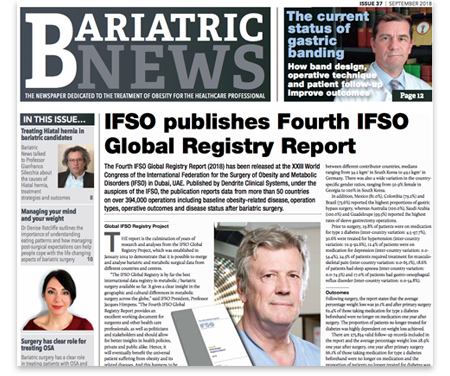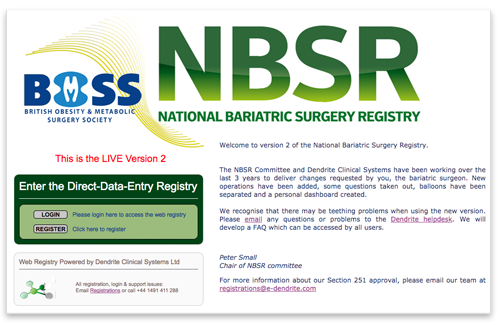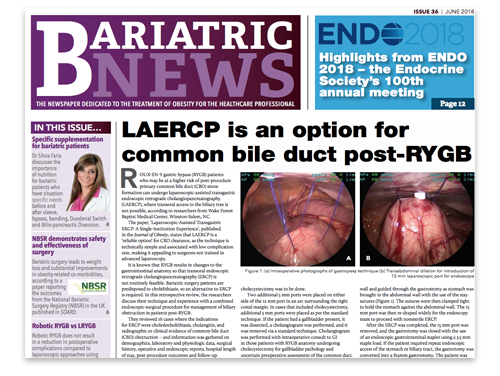Dendrite's cardiac dashboards facilitate on-line, real-time benchmarking at the touch of a button
 Dendrite Clinical Systems, working in close cooperation with the SCTS and several cardiac centres, has developed a series of ‘Dashboards’ that allow users to access to their unit’s surgical outcomes and compare them to national results in real-time. By uploading their data to the central Dendrite National Cardiac Surgical Registry, individual units or centres can instantly benchmark their results via an on-line database for internal consumption to assist units with their own clinical governance and for auditing purposes.
Dendrite Clinical Systems, working in close cooperation with the SCTS and several cardiac centres, has developed a series of ‘Dashboards’ that allow users to access to their unit’s surgical outcomes and compare them to national results in real-time. By uploading their data to the central Dendrite National Cardiac Surgical Registry, individual units or centres can instantly benchmark their results via an on-line database for internal consumption to assist units with their own clinical governance and for auditing purposes.
“There are several organisations in the United Kingdom that already examine surgical data and report a variety of clinical and organisational outcomes such as the National Cardiac Benchmarking Collaborative (NCBC). For several years the SCTS, working with the National Institute for Cardiovascular Outcomes Research (NICOR) as part of the National Cardiac Audit Programme, has been seeking to gather data on outcomes other than mortality,” explained Mr Uday Trivedi, Consultant Cardiothoracic Surgeon, from the Royal Sussex County Hospital, Brighton and Hove, and SCTS Adult Cardiac Surgery Audit Lead. “As the overall mortality from cardiac surgery is now so low, we really require data on additional outcomes such as complications like renal failure, stroke and bleeding, as well as length of hospital stay, patient surgical group demographics etc, to try and assess how we improve the quality of care for our patients. The Dashboards now give individual centres the ability to compare these complications at a national level. This is important data - not just for the multi-disciplinary surgical teams - but also for hospital managers and administrators.”
The Dashboards are exclusively for adult cardiac procedures and therefore excludes all congenital and thoracic procedures, as well as transplantation. During the development phase of the Dashboards, it was decided they would include the volume and type of procedures expected to be carried out by most surgeons or centres. As a result, the Dashboards report data on coronary surgery, aortic valve procedures and mitral valve procedures.
In addition to coronary and aortic and mitral valve procedures, a separate area for major aortic procedures is currently under development to try and ascertain how much major aortic work is performed in an emergency and/or elective setting. Specifically, this will help determine how many dissections are performed, by which units and reveal the outcomes from these procedures.
“One of the first things we had to decide was how to work around the information governance issues and GDPR requirements,” added Mr Trivedi. “Using only anonymised data, the process for data collection and analysis was mostly concerned with establishing suitable definitions, applying caveats to risk-modelling and risk-adjusted analyses.”
The desire for surgeons to benchmark themselves against national standards has always been a goal for the speciality. However, the ability to do this is dependent on several factors including how often data are submitted, it what form the data are submitted, how often and to what extent the data are analysed. By using the central Dendrite National Cardiac Surgical Registry, the ability to benchmark your data against national standards is realised with the push of a few buttons. Initially, the pilot Dashboards were rolled out to five centres and an additional 15 centres have expressed an interest in using them.
The Dashboards are not exclusive to units that only use Dendrite’s ‘Intellect Web’ software and are available for all units and centres across the develop nations. For example, units in Scotland can benchmark themselves against UK standards. Moreover, the intuitive Dashboards also allow users to take a more in-depth look at patients demographics and groups without the need for any additional coding or SQL queries on the part of users.
It is important to note that cardiac units can only look at their own data and benchmark their data to the national standard. The Dashboards cannot be used to compare one unit to another unit, and units cannot look at another unit’s data.
One key advantages of the Dashboards is the speed at which units can analyse their data, whether units unload their data monthly or quarterly, comparisons can be made in an instant. The data is presented in useful graphs and tables with the additional functionality of a data export facility to allow the data to be presented at governance and management meetings.
“We know that within centres, surgeons have different degrees of experience and seniority etc. This can lead to a skewed patient population for individuals. The SCTS has agreed with many national NHS bodies that the cardiac outcome data should be done on a unit level only and to move away from individual reporting. One of the tenets of this approach is for units to look for any negative variation in their outcomes on a quarterly basis. The Dashboards provide units with the tools to look for this variation,” Mr Uday concluded. “Clinical outcomes are the result of care provided by many clinical teams throughout the department or unit, not just one single surgeon or operation. By making the outcomes unit based, it provides both individual and collective responsibility for outcomes, creating awareness and therefore, driving quality improvement processes.”
“At the push of a single button and in just four or five seconds, surgeons can generate 37 comprehensive graphs and tables that illustrate surgical activity and outcomes at their hospital benchmarked against nationally collected data,” said Dr Peter Walton, Managing Director of Dendrite. “Dendrite is very pleased to be able to provide this added-value service to the UK community of adult cardiac surgeons.”
 Dendrite Clinical Systems, the publisher of Bariatric News, is pleased to announce issue 37 of the newspaper is now available to view/download. The newspaper reports on research, technology, events and policy in the bariatric specialty, the latest clinical studies, policy changes and product news, the latest meetings and events, interviews prominent bariatric experts, and host debates between specialists on controversial topics.
Dendrite Clinical Systems, the publisher of Bariatric News, is pleased to announce issue 37 of the newspaper is now available to view/download. The newspaper reports on research, technology, events and policy in the bariatric specialty, the latest clinical studies, policy changes and product news, the latest meetings and events, interviews prominent bariatric experts, and host debates between specialists on controversial topics. Dendrite Clinical Systems has received an order to extend the clinical database system and install its new Data Analysis System at the Al Babtain Hospital, Dammam, Saudi Arabia. Dendrite’s unique clinical database system includes four types of analytics and reports:
Dendrite Clinical Systems has received an order to extend the clinical database system and install its new Data Analysis System at the Al Babtain Hospital, Dammam, Saudi Arabia. Dendrite’s unique clinical database system includes four types of analytics and reports: The positive outcomes from the UK-ROPE (Registry of prostate embolization) – a collaboration initiated by British Society of Interventional Radiology (BSIR) and Dendrite Clinical Systems – has resulted in a National Institute of Health and Care Excellence (NICE) recommendation that prostate artery embolization (PAE) should be made available by the NHS.
The positive outcomes from the UK-ROPE (Registry of prostate embolization) – a collaboration initiated by British Society of Interventional Radiology (BSIR) and Dendrite Clinical Systems – has resulted in a National Institute of Health and Care Excellence (NICE) recommendation that prostate artery embolization (PAE) should be made available by the NHS. Dendrite Clinical Systems and the British Obesity & Metabolic Surgery Society (BOMSS) have launched Version 2 of the National Bariatric Surgical Registry, which includes several enhancements and changes improving the data collected and reporting.
Dendrite Clinical Systems and the British Obesity & Metabolic Surgery Society (BOMSS) have launched Version 2 of the National Bariatric Surgical Registry, which includes several enhancements and changes improving the data collected and reporting. Dendrite Clinical Systems, the publisher of Bariatric News, is pleased to announce issue 36 of the newspaper is now available to view/download. The newspaper reports on research, technology, events and policy in the bariatric specialty, the latest clinical studies, policy changes and product news, the latest meetings and events, interviews prominent bariatric experts, and host debates between specialists on controversial topics.
Dendrite Clinical Systems, the publisher of Bariatric News, is pleased to announce issue 36 of the newspaper is now available to view/download. The newspaper reports on research, technology, events and policy in the bariatric specialty, the latest clinical studies, policy changes and product news, the latest meetings and events, interviews prominent bariatric experts, and host debates between specialists on controversial topics. Dendrite Clinical Systems has received an order from NHS Wales to expand the successful Regional Lung Cancer Registry in North Wales to cover the whole of the country, established the Welsh National Lung Cancer Pleural Nodules Registry. The registry is designed for health professionals to collect, view and use real-time data about their patients with pleural disease.
Dendrite Clinical Systems has received an order from NHS Wales to expand the successful Regional Lung Cancer Registry in North Wales to cover the whole of the country, established the Welsh National Lung Cancer Pleural Nodules Registry. The registry is designed for health professionals to collect, view and use real-time data about their patients with pleural disease.


